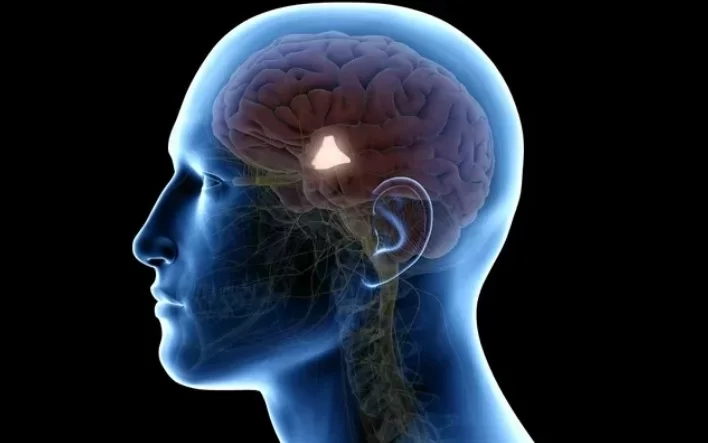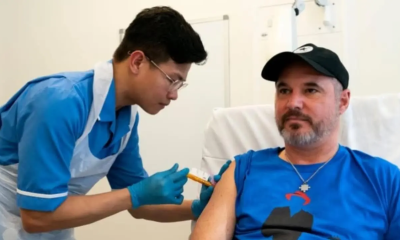
Study reveals surprising link between brain inflammation and obesity
Follow Us @
Study reveals surprising link between brain inflammation and obesity
According to the atlas of World Obesity by 2023, more than half of the world’s population will be overweight or obese by 2035. Furthermore, it is already known that this disease is directly linked to a sedentary lifestyle, and especially to the intake of fatty foods. Amid the need to prevent the scenario predicted for 2035, experts are looking for answers at the root of the problem: poor diet.
This week, a study by the team of Michiru Hirasawa and published by the magazine PNAS tried to find a relationship between inflammation of the hypothalamus – a brain area that regulates energy balance and hunger, and excessive consumption of supplements.
So far, it is understood that foods with percentages of fat are responsible for causing inflammation in the hypothalamus that abnormally increases appetite and therefore generates weight gain. Hirasawa’s study, however, revealed that inflammation in this part of the brain is not only related to obesity, but also to anorexia.

Location of the hypothalamus. (Photo: Reproduction/RedeDior).
hunger molecule
With the use of animal models, the team managed to demonstrate that the ingestion of fat causes prostaglandin E2 (PGE2) – a molecule responsible for stabilizing immunological processes, such as fever – to stimulate the hunger hormone in the hypothalamus, the MHC. Based on this system, scholars explain how inflammation can influence excessive or lack of appetite. It is understood that, with a low concentration of PGE2, hunger is increased, already with high concentration and intense inflation, it is inhibited.
To solve the deregulated appetite, the mice used were genetically altered, from the withdrawal of prostaglandin E2 receptors in the brain hormone. With this modification, animal models showed protection against obesity.
treatments for obesity
Modified genetics is currently not an option, due to the need to evaluate the effects and safety of this method. However, Michiru Hirasawa, from the Memorial University of Newfoundland (Canada), believes that his team’s studies may “one day lead us to treatments for obesity”.
While pursuing these treatments, Hirasawa recommends responsibly consuming anti-inflammatory foods to regulate appetite.
Featured photo: New study identifies brain mechanism of obese people. Reproduction/iStock
Study reveals surprising link between brain inflammation and obesity
Follow AFRILATEST on Google News and receive alerts for the main news about celebrities, soap operas, series, entertainment and more!
SHARE POST AND EARN REWARDS:
Join our Audience reward campaign and make money reading articles, shares, likes and comment >> Join reward Program
FIRST TIME REACTIONS:
Be the first to leave us a comment, down the comment section. click allow to follow this topic and get firsthand daily updates.
JOIN US ON OUR SOCIAL MEDIA: << FACEBOOK >> | << WHATSAPP >> | << TELEGRAM >> | << TWITTER >
#Study #reveals #surprising #link #brain #inflammation #obesity
-

 Fashion3 months ago
Fashion3 months agoVogue Arabia cover welcomes Salma Hayek in an interview with Penélope Cruz
-

 Football3 months ago
Football3 months agoVAR points out Diego Costa's offense against the fourth referee
-

 USA today entertainment3 months ago
USA today entertainment3 months agoBeyonce with the single “Break My Soul” leads on Spotify Brazil
-

 Health and Fitness3 months ago
Health and Fitness3 months agoVaccine against the reappearance of skin cancer enters final testing phase
-

 USA today entertainment3 months ago
USA today entertainment3 months agoSZA, Future and DJ Khaled come together in collaboration
-

 News3 months ago
News3 months agoParents of former player Waleswska are pressured by widower to pay rent for the house where they live
-

 USA today entertainment3 months ago
USA today entertainment3 months agoLarissa Luz and Linn da Quebrada enchant at the Multishow Awards with a tribute to Elza Soares.
-

 Good News TV series3 months ago
Good News TV series3 months agoThe shocking reason behind the decision not to show dead characters in The Last Of Us episode revealed













































